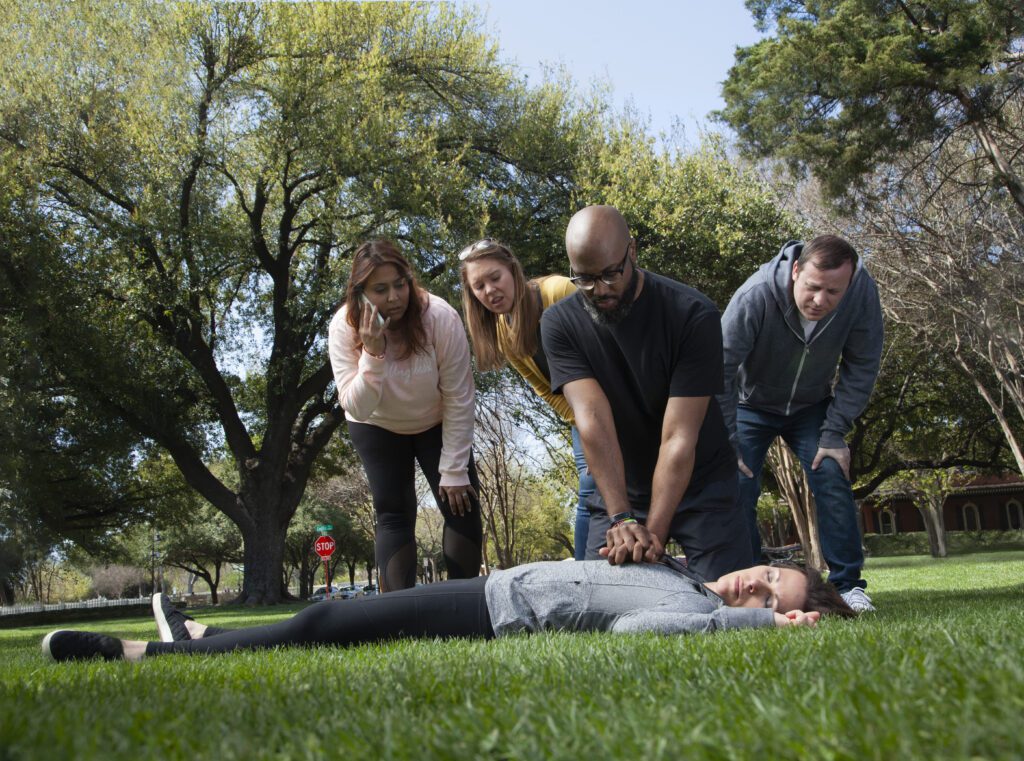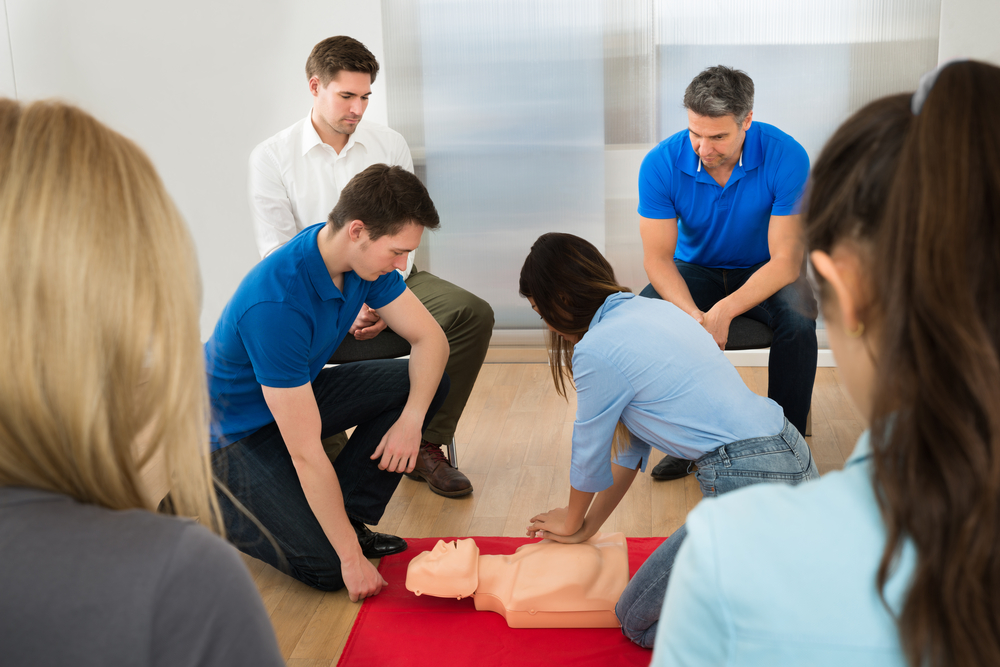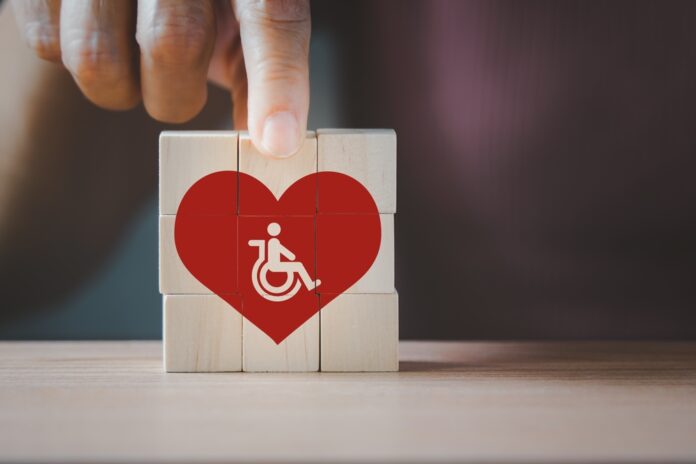A survey by the American Heart Association (AHA) revealed that while 9-out-of-10 adults believe cardiopulmonary resuscitation (CPR) improves the chances of surviving cardiac arrest, 4-out-of-10 admitted they would likely not initiate CPR. Yikes! So, what can be done to empower people of all abilities to perform bystander CPR?
During sudden cardiac arrest, a person abruptly loses heart function and immediate lifesaving intervention is needed to sustain life. [Sudden cardiac arrest is different than a heart attack. Learn more here.] More than 350,000 sudden cardiac arrests occur outside of the hospital setting each year in the United States. And, according to the AHA, prompt CPR can double or even triple one’s chance of survival! But bystander CPR just is not done enough when needed…

An Inclusive Bystander CPR Program
Thanks to an inclusive bystander CPR program developed for people with limited physical abilities, the disability community can help improve statistics and, ultimately, save lives. In collaboration with the National Organization of Nurses with Disabilities (NOND), the AHA adapted its instructional options by launching Advisor: Basic Life Support (BLS). This inclusive bystander CPR instruction is geared toward people who have the potential to pass the cognitive portion of the HeartCode BLS Provider Course but cannot independently perform the physical chest compressions.
“This program was created because we saw the need for those with disabilities to have the opportunity to participate in saving lives,” said Comilla Sasson, MD, PhD, FAHA, FACEP, and vice president for emergency cardiovascular care science and innovation at the American Heart Association.
According to the AHA’s disheartening study, a lack of training or knowledge on how to effectively perform CPR was cited as the number one reason as to why most respondents said they would not perform lifesaving measures. That’s why empowering bystanders of all abilities, including people with physical limitations, is essential in an effort to motivate the public to take lifesaving actions if and when needed.

Because everybody is different, some people with disabilities are able to perform the physical skills of CPR; whereas others are more effective at providing verbal direction. Advisor: BLS focuses on teaching people with physical disabilities to advise others on how to perform CPR and use an automated external defibrillator (AED).
“Americans are living longer with more comorbidities so, now more than ever, individuals need to learn CPR,” said Bridgette Jenkins, DNP, MSN, RN, active American Heart Association CPR Instructor and NOND board member. “We were thrilled to collaborate with the American Heart Association to help problem-solve this issue for people with disabilities at a time when it’s most critical to have these lifesaving skills.”
Thanks to ongoing research, CPR guidelines are continually finessed in an effort to save more lives. It’s been nearly 15 years since the AHA began encouraging the use of Hands-Only CPR (after surveys found that the act of mouth-to-mouth resuscitation caused bystander hesitation). The AHA states that should you see a teen or adult suddenly collapse, call 9-1-1 immediately and then press hard and fast in the center of that person’s chest; or, per the Advisor: BLS guidelines for bystanders with limited physical abilities, verbally prompt other bystanders to perform CPR.
For more information on CPR, visit CPR.Heart.org.






